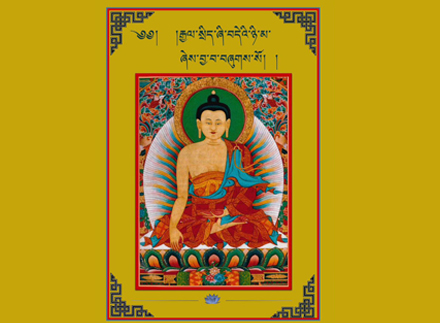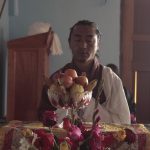
September 2015: Jangsa recently performed consecration rites for 21 bulls sponsored by Dudro Rawang Tshogchong, a group of active animal lovers in the kingdom, in the premises of Jangsa Phurba Lhakhang in Pelrithang, Gelephu. These saved animals will now be moved by Jangsa to its many shelters around the kingdom for regular care and adequate maintenance.
ENCOURAGING SUSTAINABLE TSETHAR
it is the conviction of Jangsa that despite our sincerest aspirations to rescue all animals bound for slaughter in our world, it may not be sustainable to do so. Jangsa recognizes that even the richest man or the greatest king cannot rescue all the animals in this world.
Therefore, Jangsa does not stand outside slaughterhouses trying to save the lives of all animals bound for slaughter. This is simply not sustainable.
However, what is self-sustainable is to educate people on embodying values and practices based on Bodhicitta and auspiciousness and to provide the environs so that individuals and communities can conduct Tsethar on auspicious occasions on a sustainable basis.
EDUCATION
Jangsa, as in the nationwide Zhiwai Lamten holistic education program, educated people on the value and higher purposes of Tsethar. For example – it is now a culture within Bhutan to celebrate birthdays of children with expensive cakes and parties in what is essentially ‘a celebration of impermanence’, of getting a year closer to impending death.
However, what would be immeasurably more auspicious is if Bhutanese celebrated the birthday of family members by conducting Soklu or Tsethar. While the ultimate benefits of such act is immeasurable, even in a worldly sense, one will increase the lifespan of our loved ones, based on the infallible truth of ‘karma’.
This is equally true in all cases – such as when a loved one is sick and in distress. In all cases, Tsethar can be conducted according to one’s means – from ants and insects for people with no money, to a fish for less than Nu. 100, to a goat, and bigger animals for individuals with more means.
PROVIDING ENVIRONS FOR TSETHAR
While it is easy for any individual to conduct Tsethar, the care and maintenance of these saved animals is a more daunting tasks – beyond the capacity of most individuals and even communities.
In this respect, Jangsa has intervened in an institutional capacity with shelters and caretakers established around the kingdom to encourage individuals, groups and communities to conduct Soklu/Tsethar on auspicious occasions in a sustainable and humane way.
CONCLUSION
Through the universal love for animals that all humans feel – beyond age, caste, creed, race or any ‘isms’, and by providing the necessary support structure, it is possible to inculcate the values of Compassion and Bodhicitta, directly and indirectly, in the consciousness of all individuals and wider communities.
This is the sole higher purpose of Jangsa – to inculcate and expand the culture of precious Bodhicitta in our Dharma Kingdom.



